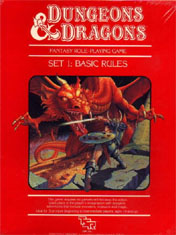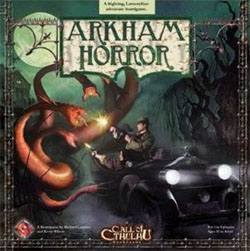(prompted by “Signs of Life” at the Society of Torch, Pole, and Rope)
The reason we look for verisimilitude in the rules of a roleplaying game and not in the rules of Monopoly is because we don’t play roleplaying games as if they were a round of Monopoly.
QED.
Personally, I look at the rules of a roleplaying game as the interface between me and the game world. I want those rules to be fun and interesting, but I also want them to be transparent: My primary interest is interacting with the game world. If I wanted to interact with the rules of a game, I’d play a boardgame like Monopoly or Arkham Horror.
So if the rules in a roleplaying game get in the way — either due to a lack of verisimilitude; or because they’re boring; or dissociated; or too complicated — then I’m going to be unhappy with those rules.














ARCHIVED HALOSCAN COMMENTS
LordVreeg [http://celtricia.pbworks.com/FrontPage]
You know, I can have these rules be complicated, or not…but I need them to reduce the immersion threshold as much as possible. Sometimes this means minimal player/setting interface, sometimes it can be a very complicated interface…but the mechanics have to help the players stay in character.
Sunday, June 20, 2010, 10:14:33 AM
Kaprou
I agree. As I am balancing rule systems, I look for a way to allow the player the maximum control while still giving the DM enough tools to fit what the player wants to fair standards and the flavor of the world. That kind of balance is irrelevant in board games. It goes beyond tactical understanding, beyond balance of play, and into the territory of shared storytelling.
Monday, May 24, 2010, 10:12:35 AM
The thing is, I’ve always found classes and levels to be the most ‘dissociated’ rules of all!
You’re right: Virtually all character creation and advancement mechanics are dissociated. The exceptions (like Traveller’s career system or RuneQuest’s use-it-to-improve-it advancement) are few and far between.
It’s just irrelevant to the present discussion.